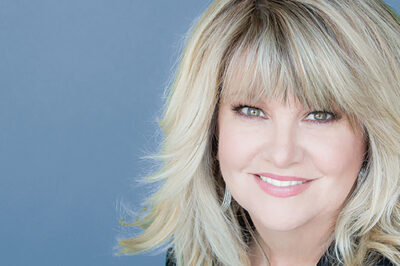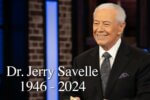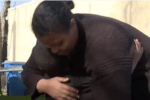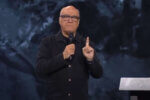A simple prayer started it all. It was a prayer of compassion.
While Gretchen Keskeys was watching a television episode of A&E Network’s Intervention, the overpowering pain and self-destruction of the show’s real-life addicts moved her. They were lost, trapped in lives they didn’t want.
From the safety of her own home, Keskeys whispered to Jesus, “If only they knew you.” The prayer continued as an earnest plea for the Lord to show her how to help suffering people through the truths He used to set her free.
Keskeys’ music ministry was launched by that prayer. And for the past decade, the Lord has been transforming this wife, mother and former journalist into someone who is both vulnerable and bold while singing publicly, testifying to crowds and responding to media questions.
Since she put God’s glory before her own insecurities, Keskeys has seen her ministry skyrocket. She travels when she can and ministers virtually as a singer-songwriter, speaker and actress. She is also writing her first book.
Since 2016, she has released three albums, Walking in the Spirit, Pure Hope and the most recent, Words of Truth (2019). Full albums and singles can be downloaded and streamed through all major digital retailers.
To help people fully appreciate the transformation she experienced through the love and power of Christ, Keskeys takes them back to the days when mental illness plagued her. At times, it would take her five hours to get through the rituals required for her to somehow feel good enough to leave the house.
Keskeys looked the part of a California dream girl, but as the years passed, fear and anxiety took over her life. She saw little value in herself and lived in paranoia that she would embarrass herself and her family.
“I was tormented inside,” she says. “I mean, literally, I was tormented.”
Keskeys relates to people, no matter what choices they’ve made or what has happened to them, through her own transparency. She remains true to that original prayer, allowing God to use her life experiences—even the darkest battles—as a vehicle for the Holy Spirit to create hope and new life in others.
“We are all looking for value, love, security and peace,” she says. “I have a heart for people who struggle with addiction, self-defeating behavior and feelings of low worth because I have had some of those struggles in my path.”
As a songwriter, Keskeys ministers hope, healing and deliverance. As a singer, she transforms her message into songs that align with the Bible and reach deep into listeners’ souls. She also leads worship, speaks at women’s conferences and is a regular visitor to California’s Folsom State Prison’s women facility, where she speaks of identity, a new life in Christ and the power of the Holy Spirit to heal the wounds that lead to addictions and self-harm.
“I see hardened criminals whose hearts were filled with hatred turn into gentle loving lambs,” she says. “Only Jesus can do that.”
Hiding the Hurt
Keskeys grew up in Sacramento, a California girl. Her parents were smart and successful. She wore nice clothes and even as a teen, drove expensive sports cars. The family traveled and appeared to be enjoying the success of her father Thomas Harris’ best-selling self-help book, I’m OK—You’re OK: A Practical Guide to Transactional Analysis. Her mother, Amy Bjork Harris, was a journalist for Mademoiselle magazine, a press secretary for the governor of Washington state and a skilled pianist. She played an important role in writing I’m OK—You’re OK.
But by age 11, Keskeys found her and her sister beginning to stay more and more at a horse farm recommended by family friends while her parents traveled. The girls loved the horses and riding, but the farm also introduced other opportunities—like drinking and the attention of men. Keskeys had been an overweight and insecure child, and she liked the attention but didn’t have the maturity to understand things were right.
Her life began to blur, to spin out of control. She worked hard to perfect her outside appearance, losing weight and wearing nice clothes, but on the inside, she was deeply insecure and struggling. She managed to create an image of the “California Dream” in her mind, driving a fancy sports car and looking the part, but she always felt shameful as if used, of little value and unworthy of real love and affection.
In the years ahead, these thoughts and feelings took on a life of their own. They grew into a bottomless pit of anxiety, depression and obsessive compulsive disorder (OCD). The mental illness became a prison of feeling dirty and broken. Compulsive rituals and excess controlled her. Anxiety manifested in agoraphobia, a condition where people avoid the places and situations that cause panic, helplessness and embarrassment.
To compensate, young Keskeys began to self-medicate with alcohol.
“I loved drinking,” she says. “It made me feel normal. People would ask, ‘Why are you so insecure? It seems like you have a perfect sense of self.'”
What people couldn’t see was the invisible pressure that came with being the child of a closet alcoholic. Her mother carried a lot of the burden and worked hard to keep up normal appearances, and it wasn’t talked about even in the home. As a child, Keskeys knew things weren’t quite right, but even so, her parents mostly created a gentle, loving home.
At Christmastime each year, her father’s drinking would escalate. Keskeys never understood why, but she did know her father bore facial scars that resulted from a childhood incident when his older siblings put a burning bag over his head. Her mother said he experienced trauma in his childhood.
Regardless of what Dr. Harris endured before he became her father, Keskeys says he was a man committed to helping others. He attended medical school and joined the U.S. Navy as a medical intern. He was aboard the submarine tender USS Pelias when it was attacked at Pearl Harbor in December 1941. He sustained permanent hearing loss as a result.
While serving during World War II, Dr. Harris experienced an unintended change. The Navy needed more psychiatrists aboard its vessels. He followed the ordered path, which led him to a lifelong career in psychiatry.
First published in 1967, his still-famous book, I’m OK—You’re OK, sold more than 15 million copies in nearly 25 languages. It showed everyday people how to apply transactional analysis to their lives. On June 25, 1972, his book hit No. 1 on the New York Times bestseller list for nonfiction. It has since been reprinted and converted for e-readers.
Transactional analysis is a method based on the idea that a person’s behavior and social relationships reflect early interchanges between three dynamics: parental (critical and nurturing), adult (rational) and childlike (intuitive and dependent). It is used by therapists to explore these interactions with patients and apply various tools and techniques to alter unwanted behaviors.
Yet, even though Dr. Harris was knowledgeable, even an expert, he didn’t really know how much his daughter was suffering because she kept her struggles as much of a secret as she could. And the more she kept secrets, the deeper her illness became. She became paralyzed with fear.
Through her teen years and starts and stops in college, Keskeys would try to do better. But she would repeatedly return to her own flawed methods to “feel normal.” Her excesses—whether in partying or the OCD rituals of checking and rechecking, cleaning and more—led to feelings of shame and isolation.
“I was about 18 or 19 when I started having anxiety and the handwashing and checking the stove began,” she says. “I was so afraid I would burn the house down or do something else that would bring shame on my family. I was always afraid that people were mad at me. As the devil does, fear became a monster in my life.”
She often drank alcohol in social situations in college to “feel normal.” Like her father, she now carried the embarrassment of a DUI charge. She never felt peace or joy. She even studied her father’s psychiatric journals in his library. They helped her understand her behavior but left her powerless to change.
“I knew something was wrong,” she says. “It was like my brain was frozen and I couldn’t stop the rituals.”
“I know all about therapy and the self-help world,” Keskeys adds. “And I’m not saying it isn’t helpful for people. But without Jesus, there is no true power to change. In therapy, I was told to say affirmations: ‘I’m confident,’ ‘I’m assertive,’ but without that power, they were just words. Jesus Christ changes our hearts and transforms our minds.”
Finding Freedom in Jesus
Growing up, Keskeys and her family were part of a large church.
“The people were wonderful, but I saw our involvement as very much a social experience,” she says.
The young Keskeys had no idea that Jesus was a Savior, someone who cared and who could fill every void, heal every hurt and wash away evil.
“Jesus was just somebody else I had to be good for,” she says. “My OCD took on a religious aspect.”
At one point, when her behavior was even scaring her, Keskeys dropped out of college and moved home to Sacramento. She was exhausted. She couldn’t continue in her state of mental distress.
Seeing her daughter spiral downward, Keskeys’ mother saw that her daughter needed more help than any person could give her. Keskeys’ mother was raised by a deeply spiritual mother who instilled in her children the importance of memorizing the Bible. Keskeys believes God gave her mother just the right verse to share with her at that time:
“Come to me, all you who are weary and burdened, and I will give you rest. Take my yoke upon you and learn from me, for I am gentle and humble in heart, and you will find rest for your souls. For my yoke is easy and my burden is light” (Matt. 11:28-30).
“I heard my mom speaking of Jesus as someone who could help me,” Keskeys says, “and for the first time, I understood that He could.”
The hopelessness began to be replaced with hope. Reading the Bible became personal.
The greatest change came when Keskeys rededicated her life to Christ at a Billy Graham crusade in Sacramento.
“That’s when I really began walking out my faith,” she says of the 1995 experience. “Even since then, God has been peeling off those painful things.”
Having struggled for so long, Keskeys understands the blindness of being lost as much as she does the miraculous sight that comes with being born again. She shares her story of being delivered from that blindness in her song “When You Believe.”
In discussing it during an interview with JubileeCast, she says, “There is a built-in blindness in unbelievers. It’s as if to them we are speaking a foreign language. It literally is the work of the Holy Spirit to change hearts. But once that happens, and they are now believers, they too see it all so clearly. It is a beautiful and amazing transformation we as believers have been through.”
That miraculous change of heart continues to produce gratefulness and compassion. Today the gratefulness she has for her own breakthrough is compounded by the changes she sees in the lives of people God reaches through her ministry.
The dreams she was once too afraid to share with people—singing, writing and speaking in front of people—are now a reality every time she sings and speaks of the goodness of Jesus, the Savior who can and will help.
After all, if He will help her, He will help everyone. Keskeys knows that the success she’s experiencing is not from her striving.
“It wasn’t like I ever asked, ‘OK, how do you write a song?'” she says. “No, it was more like the Lord put these things on my heart and then gave me this ability to write them in a song. Then, my voice just opened up. It was so exciting for me.”
One of her songs, titled “Then I Met Jesus,” shares her experience before meeting Jesus. That view was filled with her flaws and addictions. The lyrics include:
There had been hurt/ Innocence lost like permanent dirt/ But then I met Jesus/ He washed me clean/ He forgave my sins/ And He died for me/ He gave me value/ And righteousness, too/ When I met Jesus/ He made me brand new/ That person that I was/ No longer is alive/ The fear, shame and darkness/ All have died/ Because I met Jesus.
“What my story perfectly says is that you can have all kinds of information and all kinds of help around you, but just having that knowledge doesn’t change you,” she says. “What changes you is Jesus. He frees you.”
Believing for Change
Keskeys’ time with the female prisoners at Folsom is dear to her. She looks forward to returning to her regular schedule when the facility reopens to visitors. While there, she leads worship and shares Jesus.
She sees a pattern of abuse, neglect, depression and abandonment in the women she meets there. She understands how early events contributed to the choices they made in life. There’s no judging, just loving.
Even when she’s looking at a photograph or even a mugshot of someone whose face is gaunt with signs of drug abuse or their eyes are hard as steel, she sees them in her mind’s eye as young, innocent children. This view, given by God, represents the new life in Christ that’s available to them. And she’s there to say so.
Some of those women experience miraculous transformations.
“You can just see what He’s done in their lives,” Keskeys says. “They are exactly the people I prayed about that night.”
In Christ, the toxic cycles are broken. Lives are restored.
“It’s one of my favorite places to lead worship,” she says. “They pour their whole heart into worship. They are so excited about the Lord because they are seeing what He’s doing in them.”
Keskeys writes every song with the listeners and their freedom in mind, whether they are physically or mentally imprisoned. As she writes her first book, she’s revisiting her childhood and appreciating the way God not only came to her aid, but that of her parents.
As her father aged, he also found true peace, joy and hope in the Lord.
“It was beautiful,” she says, noting how close she became to him and her mother. The last time Keskeys saw her father, she was turning to walk out the door, and he said, “You know, there is something good out there.” He died later that day.
Each day she sees the good, not because life is always easy or because she never has to trust God or lean into Him for healing, but because He’s there. He’s safe. He’s her best friend.
And while the coronavirus has hindered some of her travel, especially the regular visits to the women at Folsom Prison, it has also provided her with time to write. There’s a new album in the works and the beginnings of the book.
“My prayer, obviously, is that God will just use me where He can,” she says.
It’s a prayer that’s never failed her or the countless people God touches through her heart and ministry.
Janenne Irene Pung is a freelance editor and writer for Charisma Media.






Leave a Comment
You must be logged in to post a comment.